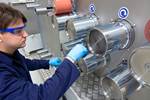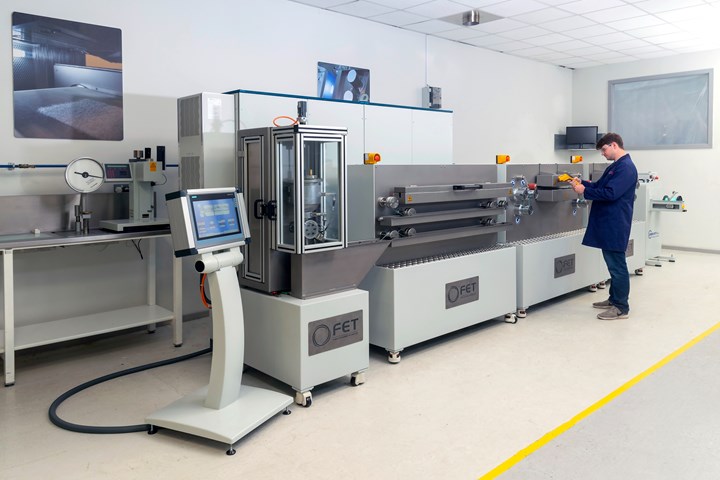Henry Royce Institute uses FET system for trials on more sustainable fibers from wood pulp
Fibre Extrusion Technology wet spinning system selected for sustainable, advanced materials research in the U.K.
Fibre Extrusion Technology Ltd. (FET, Leeds, U.K.) has installed a FET-200Lab wet spinning system at the University of Manchester (U.K.), which the company says will play a major part in advanced materials research to support sustainable growth and development.
This research program will be conducted by the Henry Royce Institute, which operates as a hub model at the University of Manchester with spokes at other leading research universities in the U.K. The institute identifies challenges and stimulates innovation in advanced U.K. materials research, delivering positive economic and societal impact. In particular, the current materials research initiative, in association with FET, is focused on supporting and promoting all forms of sustainable growth and development. Challenges range from biomedical devices to plastics sustainability and energy-efficient devices.
FET-200 Series wet spinning systems complement FET’s range of melt spinning equipment. The FET-200Lab is a laboratory-scale system, which is especially suitable for the early stages of formulation and process development. It is used for processing new functional textile materials in a variety of solvent and polymer combinations.
“We are delighted to be associated with such a prestigious research organization as the Henry Royce Institute” FET managing director, Richard Slack, says. “This flagship research program into future materials reflects FET’s wide experience and commitment to enabling client development of textile fibers made from renewable resources.”
In particular, the FET-200Lab will be used in trials for a family of fibers made from wood pulp, a sustainable resource rather than fossil fuels. Bio-based polymers are produced from biomass feedstocks such as cellulose and are commonly used in the manufacture of high-end apparel. The key to cellulose and other materials like lyocell and viscose, FET says, is that they can be recycled, treated and fed back into the wet spinning system for repeat manufacture.
Established in 1998, FET supplies a range of laboratory and pilot melt spinning systems with installations in more than 35 countries. The company has now successfully processed more than 35 different polymer types in multifilament, monofilament and nonwoven formats.
Related Content
-
Evolving natural fiber technology to meet industry sustainability needs
From flax fiber composite boats to RV exterior panels to a circularity model with partnerships in various end markets, Greenboats strives toward its biomaterials and sustainable composites vision in an ever-changing market.
-
Lingrove plant-based ekoa composite featured in Hyundai Palisade concept vehicle
Carbon-neutral biocomposite enables interactive doorspear with look and feel of wood while protecting trees, enabling transparency and capacitive touch for futuretech.
-
Robotized system makes overmolding mobile, flexible
Anybrid’s ROBIN demonstrates inline/offline functionalization of profiles, 3D-printed panels and bio-based materials for more efficient, sustainable composite parts.

















